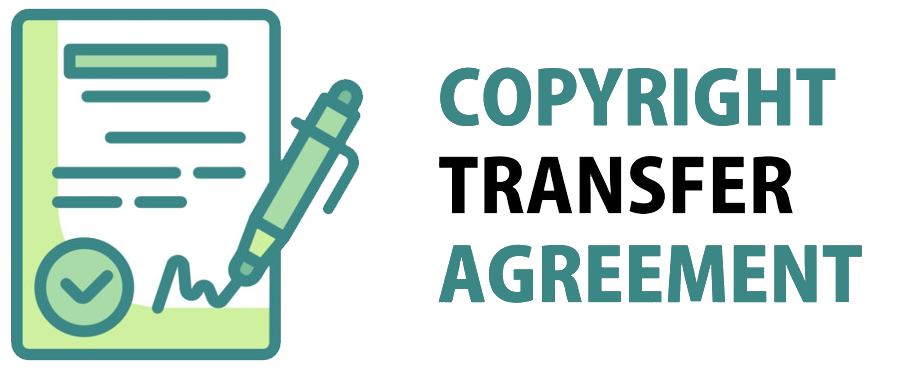The Influence of Institutional Ownership and Capital Intensity Moderated by Company Size on Tax Avoidance
Abstract
This research aims to analyze and obtain empirical evidence regarding the influence of institutional ownership and capital intensity moderated by company size on tax avoidance. The independent variables used in this study are institutional ownership and capital intensity. The dependent variable used in this study is tax avoidance. The moderating variable in this study is the size of the company. The data used in this study are secondary data obtained from the official website of the Indonesia Stock Exchange and the official websites of each company. The population in this study consists of 68 property and real estate companies listed on the Indonesia Stock Exchange from 2019 to 2023. With the purposive sampling technique, a sample of 17 property and real estate companies listed on the Indonesia Stock Exchange was obtained. The data analysis method in this study uses multiple linear regression analysis and moderation regression analysis.
Keywords
Full Text:
PDFReferences
Amiah, N. (2022). Profitabilitas, Intensitas Modal Dan Penghindaran Pajak : Ukuran Perusahaan Sebagai Variabel Pemoderasi. Akuntansi, Jurnal Literasi, 2(2), 54–65. https://jurnal.ylii.or.id/index.php/litera/article/view/22
Aryani, L., & Tambunan, M. R. U. D. (2022). Catatan Atas Formulasi Kebijakan Perubahan Tarif Pajak Pertambahan Nilai (Ppn) Di Indonesia. Dialogue : Jurnal Ilmu Administrasi Publik, 4(2), 362–381. https://doi.org/10.14710/dialogue.v4i2.14893
Cnbcindonesia.com. (2024). Jadi Tersangka Korporasi Kasus Pajak, Bos Bhakti (BAPI) Buka Suara. https://www.cnbcindonesia.com/market/20240325123337-17-525137/jadi-tersangka-korporasi-kasus-pajak-bos-bhakti--bapi--buka-suara
Darsani, P. A., & Sukartha, I. M. (2021). The Effect of Institutional Ownership, Profitability, Leverage and Capital Intensity Ratio on Tax Avoidance. American Journal of Humanities and Social Sciences Research, 5(1), 13–22. www.ajhssr.com
Dewi, S. L., & Oktaviani, R. M. (2021). Pengaruh Leverage, Capital Intensity, Komisaris Independen Dan Kepemilikan Institusional Terhadap Tax Avoidance. Akurasi : Jurnal Studi Akuntansi Dan Keuangan, 4(2), 179–194. https://doi.org/10.29303/akurasi.v4i2.122
Disway.id. (2023). Permasalahan Pajak Dibalik Maraknya Bisnis Properti. https://jateng.disway.id/read/654152/permasalahan-pajak-dibalik-maraknya-bisnis-properti
Djaali. (2021). Metodologi Penelitian Kuantitatif (B. S. Fatmasari (ed.)). Bumi Aksara. https://www.google.co.id/books/edition/Metodologi_Penelitian_Kuantitatif/wY8fEAAAQBAJ?hl=id&gbpv=0
Frida, C. V. O. (2020). Hukum Pajak di Indonesia: Pengantar atau Dasar-Dasar Perpajakan. Garudhawaca. https://books.google.co.id/books/about/Hukum_Pajak_di_Indonesia.html?id=2Gr-DwAAQBAJ&redir_esc=y#:~:text=Paparan yang sangat jelas dan ringkas mengenai berbagai,yang ingin memahami tentang ketentuan perpajakan di Indonesia.
Frizky, N. P. G. D., & Dirman, A. D. (2022). Pengaruh Kepemilikan Institusional dan Profitabilitas terhadap Tax Avoidance dengan Ukuran Perusahaan sebagai Variabel Moderating (Studi Empiris pada Perusahaan Sektor Energi yang Tedaftar Di Bursa Efek Indonesia Tahun 2018-2020). Journal of Applied Business Administration, September, 101–108.
Harianto, R. (2020). Pengaruh Strategi Bisnis, Kepemilikan Institusional dan Kebijakan Utang Terhadap Penghindaran Pajak. Liability, 02(1), 49–69.
Indrawati, T., Budiyanto, & Suhermin. (2023). Peran Moderasi Good Corporate Governance Pengaruh Terhadap Nilai Perusahaan Makanan Dan Minuman Di Bursa Efek Indonesia. CV Literasi Nusantara Abadi. https://www.google.co.id/books/edition/PERAN_MODERASI_GOOD_CORPORATE_GOVERNANCE/e2K5EAAAQBAJ?hl=id&gbpv=1
Katadata.co.id. (2021). Jangan Diabaikan, Ini Fungsi Pajak Bagi Negara. https://katadata.co.id/safrezifitra/finansial/613079a79a797/jangan-diabaikan-ini-fungsi-pajak-bagi-negara
Malik, A., Pratiwi, A., & Umdiana, N. (2022). Pengaruh Ukuran Perusahaan, Pertumbuhan Penjualan Dan Capital Intensity Terhadap Tax Avoidance. “LAWSUIT” Jurnal Perpajakan, 1(2), 92–108. https://doi.org/10.30656/lawsuit.v1i2.5552
Ocbcnisp.com. (2023). Mengenal Jenis Sumber Pendapatan Negara Beserta Contohnya. https://www.ocbcnisp.com/id/article/2023/02/02/sumber-pendapatan-negara
Pradana, F. A., & Wulandari, S. (2023). Fenomena Praktik Penghindaran Pajak Saat Pandemi Covid-19 Pada Perusahaan Property Dan Real Estate. Jurnal Akuntansi Dan Keuangan, 11(1), 21. https://doi.org/10.29103/jak.v11i1.9500
Ramadani, S., & Tanno, A. (2022). Pengaruh Profitabilitas, Leverage dan Capital Intensity terhadap penghindaran pajak dengan ukuran perusahaan sebagai variabel moderasi. Syntax Literate : Jurnal Ilmiah Indonesia, 7(12), 19975–19994. http://dx.doi.org/10.36418/syntax-literate.v7i12.11617
Sari, M. R., & Indrawan, I. G. A. (2022). Pengaruh kepemilikan instutional, capital intensity dan inventory intensity terhadap Tax Avoidance. Owner, 6(4), 4037–4049. https://doi.org/10.33395/owner.v6i4.1092
Siswanto, E. H., Chadijah, & Nurwati. (2021). Pengaruh Ukuran Perusahaan, Kepemilikan Institutional, Dan Intensitas Modal terhadap Agresivitas Pajak. Profita: Komunikasi Ilmiah Akuntansi Dan Perpajakan, 14(1), 26–38. https://kc.umn.ac.id/13004/
Stephanie, F. G., & Ruslim, H. (2021). Pengaruh Rasio Keuangan Terhadap Kinerja Keuangan Perusahaan Asuransi. Jurnal Kontemporer Akuntansi, 1(2), 68. https://doi.org/10.24912/jka.v1i2.15090
Sudarno, Renaldo, N., Hutauruk, M. B., Junaedi, A. T., & Suyono. (2022). TEORI PENELITIAN KEUANGAN. CV Literasi Nusantara Abadi. https://www.google.co.id/books/edition/TEORI_PENELITIAN_KEUANGAN/LpSbEAAAQBAJ?hl=id&gbpv=0&kptab=overview
Wardhana, M. D., Arieftiara, D., & Setiawan, A. (2021). Pengaruh Capital Intensity, Corporate Social Responsibility, dan Environmental Uncertainty Terhadap Tax Avoidance. Equity, 24(2), 157–174. https://doi.org/10.34209/equ.v24i2.2603
Yuni, N. P. A. I., & Setiawan, P. E. (2019). Pengaruh Corporate Governance dan Profitabilitas terhadap Penghindaran Pajak dengan Ukuran Perusahaan Sebagai Variabel Pemoderasi. E-Jurnal Akuntansi, 29(1), 128. https://doi.org/10.24843/eja.2019.v29.i01.p09
DOI: http://dx.doi.org/10.22441/jies.v13i1.29897
Refbacks
- There are currently no refbacks.
Copyright (c) 2024 Jurnal Ilmu Ekonomi dan Sosial (JIES)

This work is licensed under a Creative Commons Attribution-ShareAlike 4.0 International License.
Jurnal Ilmu Ekonomi dan Sosial (JIES)
Editorial Office:
Pusat Penelitian Universitas Mercu Buana Jakarta, Gedung D Lantai 1,
Jalan Meruya Selatan No. 01, Kembangan, Jakarta Barat 11650.
Phone 021-5840816 Extention 3451 Fax. 021-5840813.
Homepage : http://www.mercubuana.ac.idEmail : [email protected]
| Print ISSN: 2301-9263 | |
| Online ISSN: 2621-0371 |

Jurnal Ilmu Ekonomi dan Sosial (JIES) and the article sare licensed under a Creative Commons Attribution-ShareAlike 4.0 International License.










